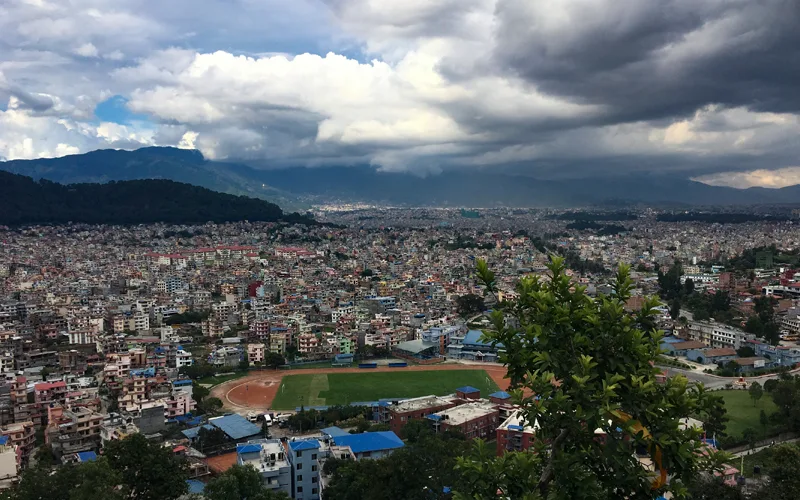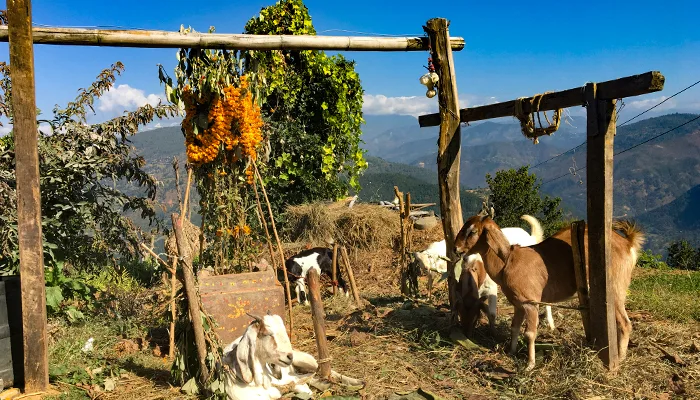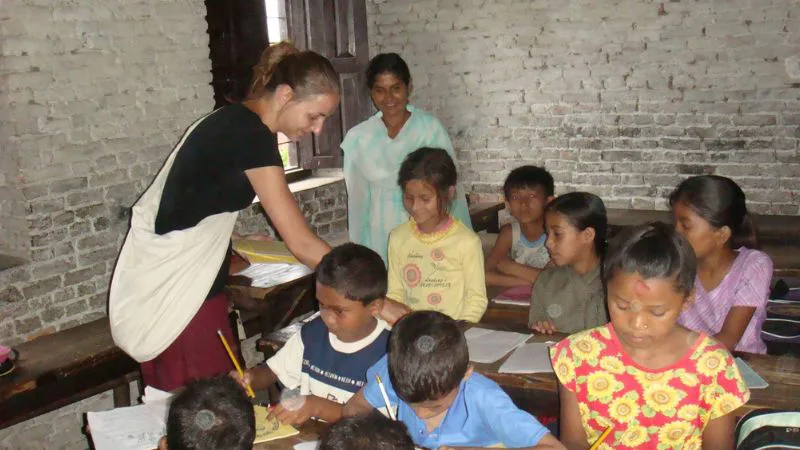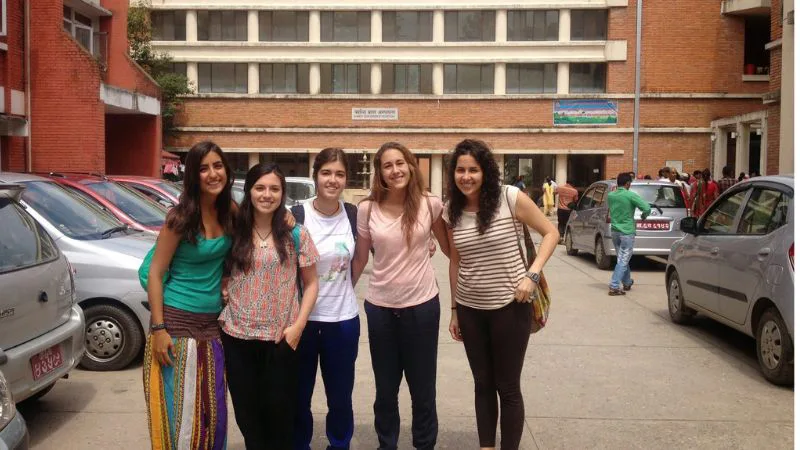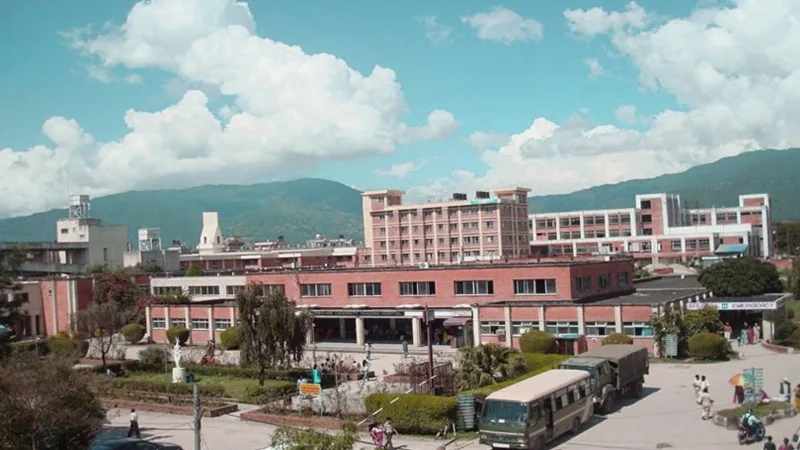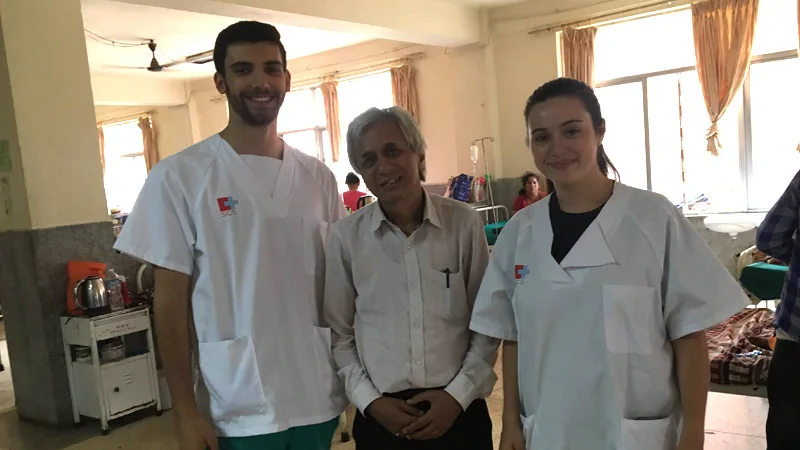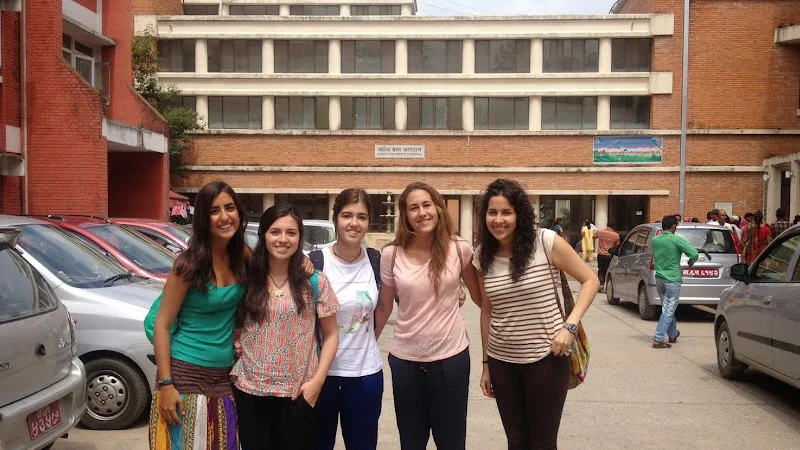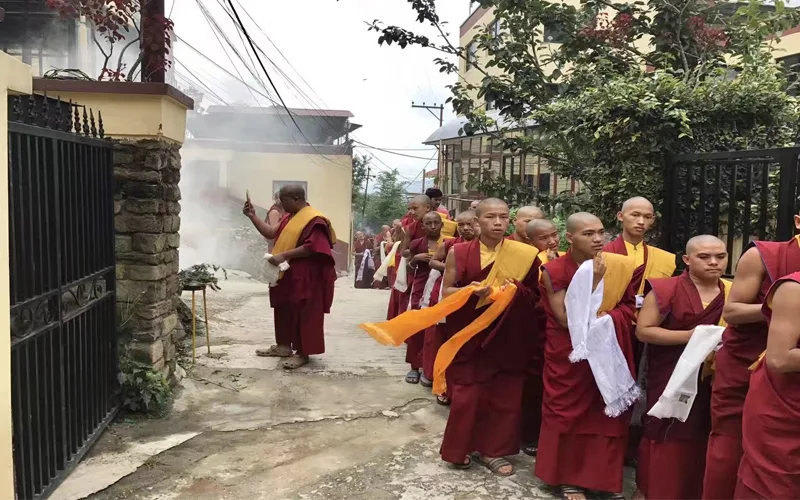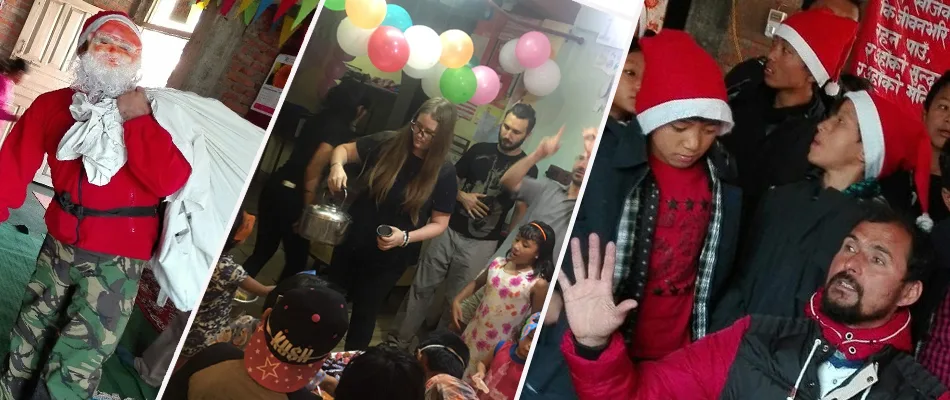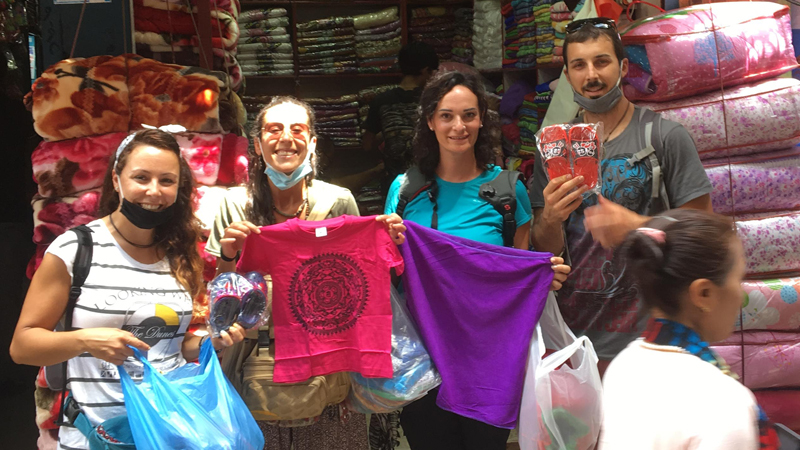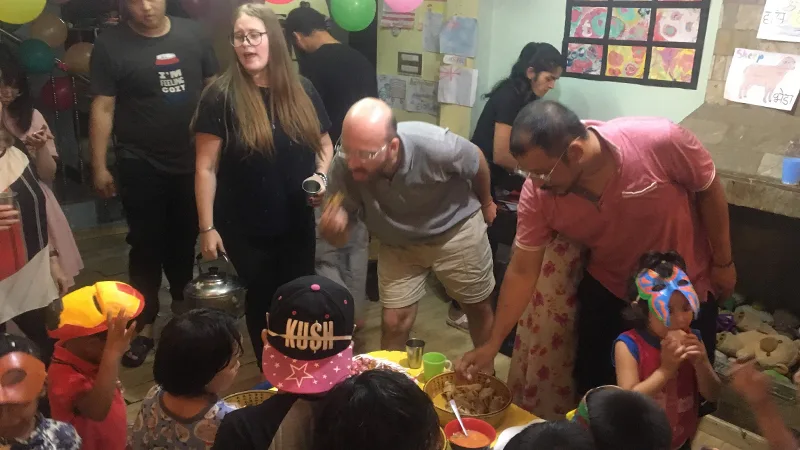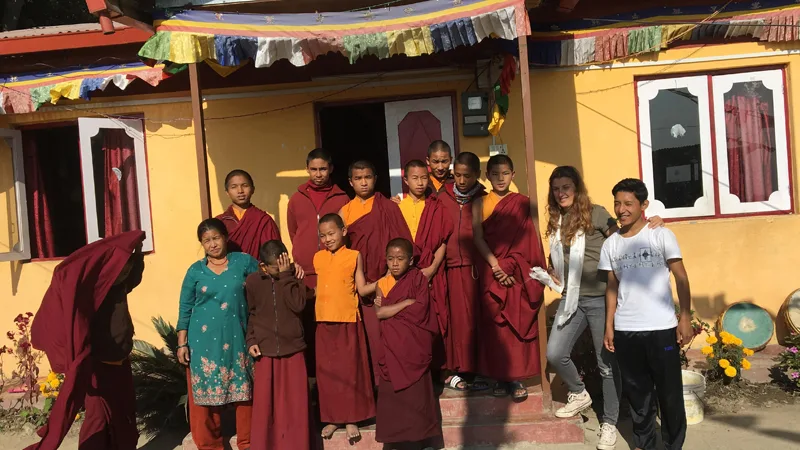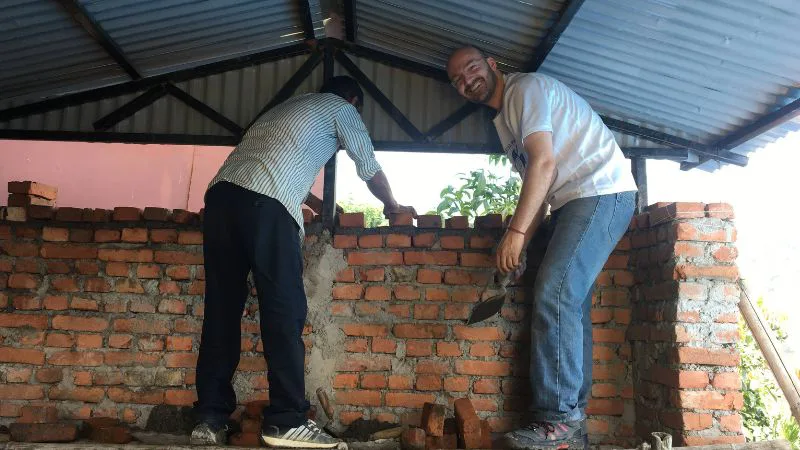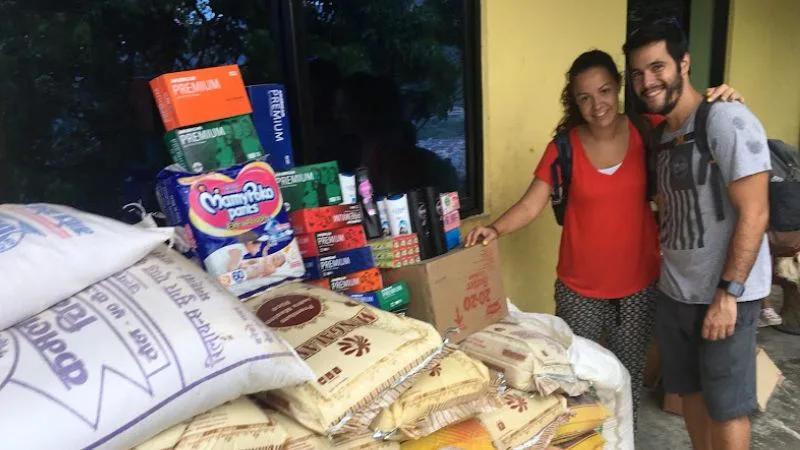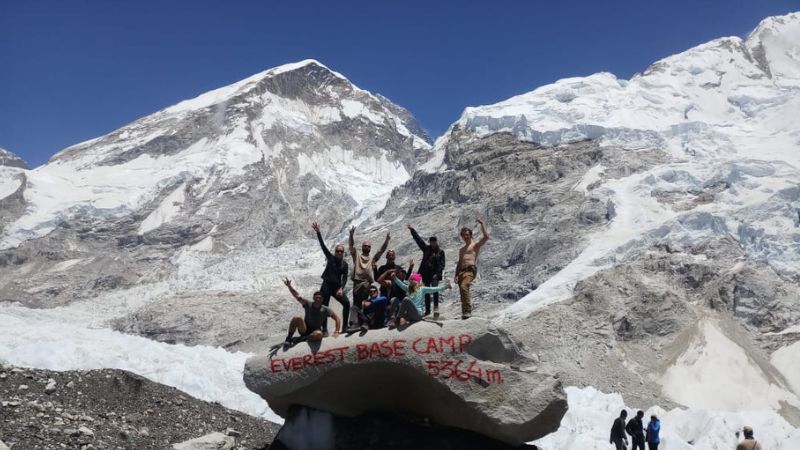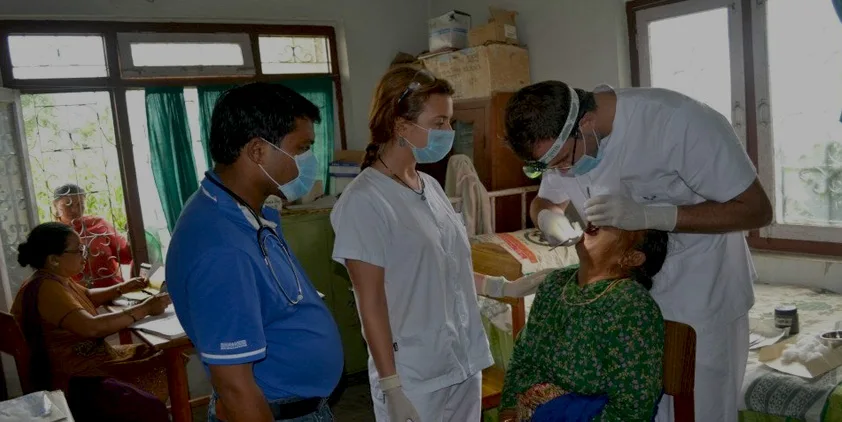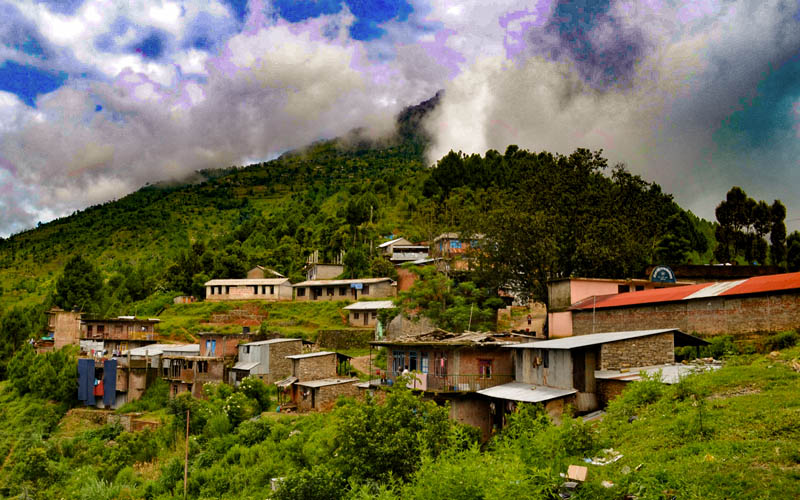
-
Adopt a relaxed attitude and be flexible
Nepal may be an unpredictable country for organized people. People in Nepal live in a more relaxed and carefree way and don’t follow strict deadlines and will often be late for appointments. Taking a flexible approach will be helped you to enjoy yourself while integrating into Nepali culture.
-
Keep only small amounts of cash on your person
Nepal is a safe country for travelers, and there are few incidents of crime. Nepali people prefer to live in understanding and co-operation, which is why, although living in conditions of poverty, most Nepalese appear to be happy and carefree. There are, however, isolated incidents of new travelers being duped. Not carrying large amounts of foreign currency is always wise. Please note that only Kathmandu and Pokhara have credit card cash retrieval or currency exchange facilities. Therefore, if you plan a trek or trip lasting several days, please ensure that you take sufficient Nepalese currency.
-
Avoid buying from street vendors
Although street vendors do not harm travelers, they may pester them to buy cheap souvenirs at inflated prices. If you are particularly keen to speak to them and share experiences, please ensure that you do not have much cash. In fact, they are likely to know a great deal about the locality and may give you useful information. However, street vendors are known for telling stories in an attempt to gain sympathy. A naïve traveler will fall for these stories and buy the street vendor a book or some milk, which he will then sell on for a tidy profit. These incidents happen very frequently in the major tourist areas of Thamel in Kathmandu.
-
Punctuality
This is a significant problem with general Nepali people. You can hope for something to be done in one hour, but please allow more time. Nepali people rarely follow a strict deadline, and to be half an hour late for appointments is considered normal. You will hear this referred to as ‘Nepali time.’ If you have official business to conduct such as visa renewal, seeking trekking permits, etc., please allow ample time. Be assured that at Hands for Help Nepal, we are always punctual and prefer to follow deadlines in a more western manner.
-
Don’t worry if you get lost
Shopkeepers are always able to help you with finding addresses and the right means of transport if you are lost. They know the local area very well and may allow you to use the phone for a small fee, e.g., 4-5 rupees for a local call or borrow a mobile phone with strangers. You can buy Nepalese Simcard upon arrival in Kathmandu. Remember to keep the telephone numbers of the Hands for Help Nepal director and your host family with you at all times.
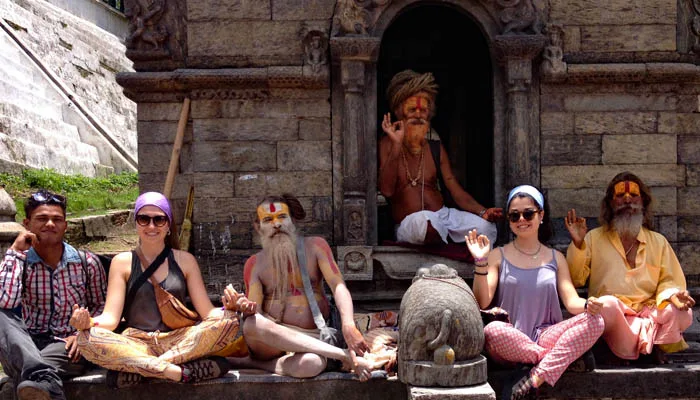
-
Avoid traveling late in the evenings
Generally, there is nothing to do after dark in Nepal. Nepali people spend their time at home with their families and rarely go out at night. You may encounter drunken people or street people after dark. In rural areas, where after 9 pm most of the shops, traffics is closed. Late-night travel is unpredictable, and you may disturb your host family. Please, remember to let your family know where you are and that you are all right.
-
Be discrete with new people
Nepali people are generally keen to speak to foreigners, but they rarely stop them from chatting. Travelers should beware of those who very interested and offer food or drinks or take them home to visit their family. This may be a ploy to encourage the traveler to buy things for the family. Female travelers should be especially cautious in such situations.
-
Use emails and phones, rather than depending on the postal system
WIFI with hight and moderate speed internet is used widely in Kathmandu, Pokhara, and all major cities, even in villages in Nepal. It is the most convenient, fast, and secure way to communicate while away from home. In Kathmandu, there are many cafes, restaurants, and hotels offering Internet access at free cost. The postal system in Nepal is unreliable; therefore, post boxes or collection agents should not be used unless their reliability is assured. Only send valuables by registered post from the central post office in Kathmandu at Sundhara, below the tallest tower.
-
Bargain
Travelers should ensure they do not buy things without knowing the lowest prices. Shopkeepers can usually identify new visitors by their demeanor and will inflate prices accordingly. Always take time to compare prices between the many shops before buying.
-
Use the Nepali you have learned
The use of the Nepali language brings you closer to people. It will also reduce the chance of you being bothered by those trying to profit from the inexperience of new tourists.
-
Sharing food with others
People in Nepal always share food with one another. If you are with a Nepali, be it a friend, teacher, or family member, it is expected that you share food. Not to share is considered to be bad manners. It is better not to eat in front of someone if you do not wish to share.
-
Toilets and bathing
Toilets in villages are unlike the western toilets found in hotels in Kathmandu. Toilets are usually a small room with a hole in the ground. Some toilets have taps. For those where there is no tap, you may need to carry water in a bucket and pour it for flushing. Toilet paper is not generally used as it causes blockages. Most of the host families do not have bathrooms. It’s usual to have a bath in public taps. Volunteers will be oriented to having an open shower and squad toilet during pre-placement talk.
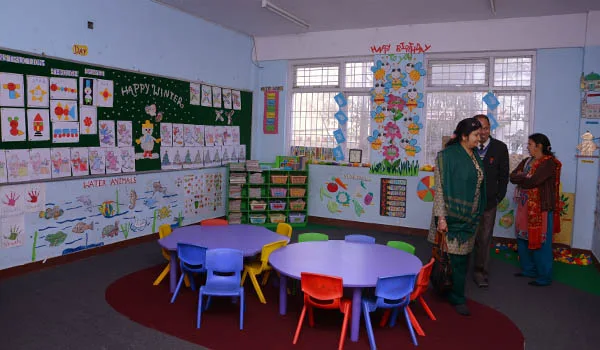
-
Staying with a host family
You are here in Nepal to experience Nepali culture, customs, beliefs, food, and many other aspects of daily life. Please be prepared to put aside some of your western expectations and customs. Different cultural practices will inevitably cause some confusion, but your time with your host family will be easier if you try to adopt a Nepali lifestyle. It will also be a smooth relation with your host family if you follow their family rules, for example:
- Please avoid going out during the night. If you do, ensure you explain where and with whom you are going. Remember to inform your host family whether or not you are eating dinner with them.
- Please, avoid eating with others on too many occasions. If you are eating elsewhere, please explain clearly that where you are eating and what time you will be back.
- Please, do not bring many friends to your host family home, especially those of the opposite sex.
- Please only use your host family’s telephone for short periods so that other family members can use it. Please only give their telephone number to important people, such as your family back home.
-
Food and Drink
‘Daalbhaat’ is the traditional Nepali meal and is eaten twice a day at around 9.30 am and 8 pm. Daalbhaat is boiled rice, lentil soup accompanied by a vegetable curry dish. Many volunteers find it tasty and healthy. Foods such as chips, sandwiches, burgers, and cakes are not available in rural areas due to a lack of proper refrigeration systems and ideas of cooking styles. However, travelers who do not like daalbhaat may find light foods like noodles, biscuits, chawmins, etc. more palatable. While your body adjusts to different diets, it may be advisable to avoid eating food with a large meat content for the first few days of your visit and choose plain, light foods such as sandwiches, fruits, salads, and baked goods.
Drink water straight from the tap is not recommended anywhere in Nepal. Please ensure you have boiled water properly or purified with tablets. Bottled water is safe for drinking and is widely available. Please ensure the seal has not been broken before purchasing. Hands for Help Nepal has arranged for all volunteers to have boiled water whilst staying in villages.
-
Climate
The climate in Nepal ranges from freezing cold in the high altitude regions of the Himalayas to subtropical in the lowland of Terai region. The mountainous or middle parts of Nepal have a moderate climate. The day-time temperature is around 20 degrees Celsius all year round. However, during the summer months of May and June, the temperature can rise to 35 degrees Celsius in this region. During the winter months of December to February, days are slightly shorter and cooler. The evenings and nights can reach as low as 0 degrees Celsius in Kathmandu. During the monsoon season, July to August, there are a few hours of rain on most days; however, there are still many days of bright sunshine. Obviously, it’s the wettest time of the year, and traveling around the country may not be the most pleasant experience. During the monsoon season, Nepalese people plant rice, and the vegetation is lush green. The best seasons to visit Nepal are between October and December, when there are many festivals, and between March and May.
If the climate of Nepal is very different from your own country’s climate, please take special care of yourself during the first 72 hours of your stay in Nepal. Humidity, pollution, air infections are likely to cause illnesses such as diarrhea, cold, etc.
The paragraphs below give approximate costs of essentials in Nepal. This information may be useful for planning ahead.
(1 US$ = approx. 118 NPR)
